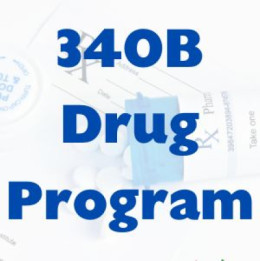Posted On: March 2, 2020 by Community HealthCare System in: Community health news

Colorectal cancer is the fourth-leading cause of new cancer diagnosis and third-leading cause of cancer-related deaths according to the National Cancer Institute. About 4% of men and women will be diagnosed with colorectal cancer.
March is Colorectal Cancer Awareness Month, so it’s a great time to consider your colorectal cancer risk and options for screening.
“Fortunately, screening for colorectal cancer can identify early-stage cancer that is often easier to treat and results in lower mortality,” said Dr. Nicholas Cahoj. Cahoj is a family practice physician at the Community HealthCare System Westmoreland Clinic in Westmoreland, Kansas.
Cahoj said most colorectal cancers arise from colon polyps that start out as benign but progress from small polyps to cancer. Such polyps occur in about 30% of men and about 20% of women. Progression is believed to take an average of 10 years, which is why screening is effective at catching problems early.
The United States Preventive Services Task Force recommends screening for colorectal cancer starting at age 50 and continuing until age 75. Multiple options for screening are available, including stool tests (for blood and/or abnormal DNA), colonoscopy, and virtual colonoscopy with a CT scan.
“The preferred method of screening for most physicians is colonoscopy, as this approach provides the benefit of visualizing the polyp and obtaining biopsies at the same time,” said Dr. Cahoj. Colonoscopies are typically repeated every 10 years if they are normal, but may need to be repeated sooner if abnormalities are present.
Cahoj said the incidence and mortality rates of colorectal cancer have been decreasing in the United States, likely due to increased screening practices. Waiting for symptoms to develop, such as rectal bleeding/mass, change in bowel habits, abdominal pain, and weight loss, often indicates a more advanced cancer with higher mortality.
Options to reduce your risk of colorectal cancer are limited. Low-dose aspirin may be beneficial in a select group of patients. Data regarding regular physical activity and special diets is inconclusive on primary prevention of colorectal cancer.
Despite all of this, patients are often hesitant about undergoing a colonoscopy. “Reluctance is understandable, but the procedure is relatively quick – about 30 to 45 minutes – and is typically performed with sedation and in an outpatient setting,” said Dr. Cahoj.
Contact your primary care provider to learn more about colonoscopy and to determine if screening is appropriate for you. Community HealthCare System has several physicians on staff that perform colonoscopies. The procedure can be scheduled locally in Onaga, Holton, or St. Marys.
“Screening for colorectal cancer is truly the best option to prevent the disease. Screening saves many lives, so I urge patients to talk to their providers about the right time to screen,” Cahoj said.
Note: The photo above shows our colonoscopy team.










-
View AllTaylor Hansen | Jun 8th 2020 @ 12:42 PM
It's interesting to learn that a colonoscopy takes only 30 to 45 minutes. Since I am almost 40 this month, I am thinking about getting a colonoscopy since colon cancer runs in my family. I'll have to research the best professional around me so I can calm my nerves before the procedure. http://midstategastroct.com/colon-cancer-screening/